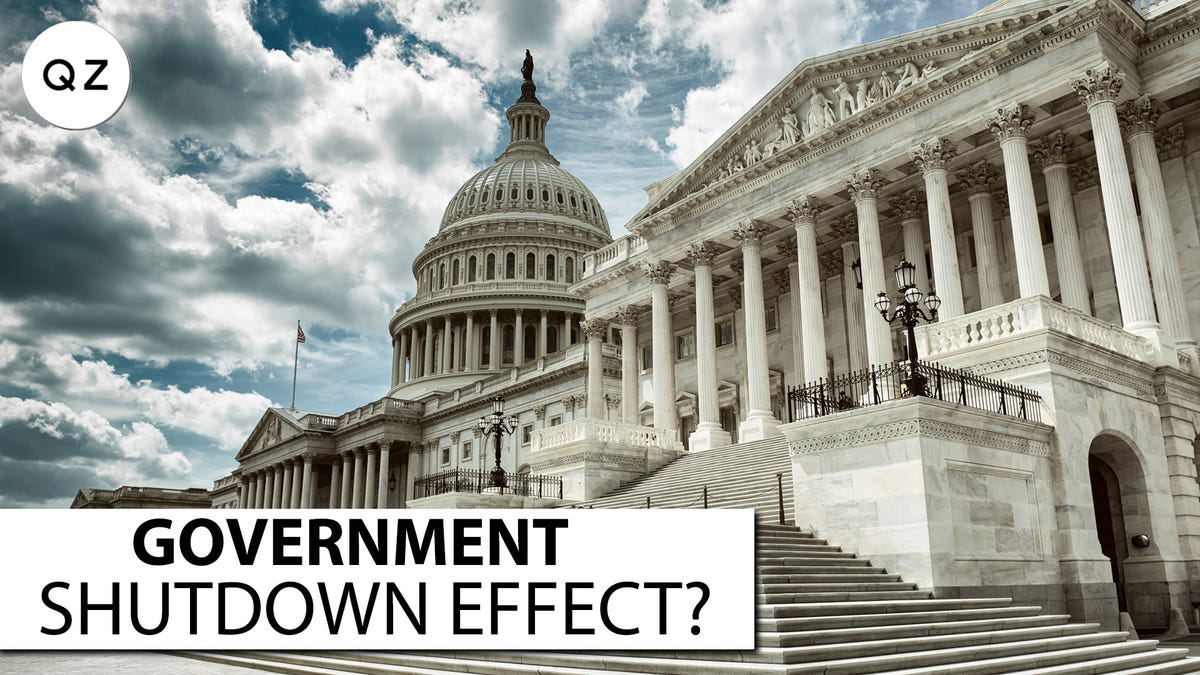Goldman Sachs analysts predict that the U.S. government is "more likely than not" to shut down later this year due to spending disagreements, which could temporarily impact economic growth by reducing it by 0.15-0.2 percentage points per week, with past shutdowns having minimal impact on equity markets.
The potential government shutdown threatens to deprive the Federal Reserve of crucial data on the labor market and inflation, which could hinder its ability to make informed decisions about the economy and interest rates.
The White House warns that a government shutdown at the end of the month could have damaging consequences for the economy, national security, and the American public.
Investors shouldn't worry about a government shutdown as it is unlikely to have a significant impact on the markets.
Millions of federal employees and military personnel face the prospect of a government shutdown, which would result in financial hardships for American families, disruptions in services, and potential harm to the economy.
The federal government is likely to face a shutdown that will affect various services, disrupt workers' pay, and create political turmoil as Republicans demand deep spending cuts.
The impending federal shutdown, combined with other economic challenges such as rising gas prices, student loan payments, and reduced pandemic savings, is expected to strain American households and potentially weaken economic growth in the last quarter of the year.
A government shutdown could result in significant disruptions to air travel, delays in food safety inspections, reduced workplace inspections and worker safety risks, closure of museums and national parks, disruptions to student aid programs and federal funding for schools, and delays in federal reimbursements for Meals on Wheels, among other impacts.
A government shutdown on October 1 is likely, but it is not expected to have a significant impact on financial markets or cause an economic recession.
Google searches about the potential government shutdown in the US are increasing, with a particular interest in how it would affect Social Security, veterans' benefits, and the US dollar.
The S&P 500 typically experiences a decline before US government shutdowns, but tends to rebound and gain in the following months; however, the current shutdown may add to short-term market volatility amidst already challenging economic conditions.
A U.S. government shutdown would negatively impact its credit assessment and highlight the weakness of its institutional and governance strength compared to other top-rated governments, according to Moody's, although the economic impact would likely be short-lived.
The federal government is on the verge of a shutdown, with potential consequences for various areas of governance.
The possibility of a government shutdown in the U.S. could have negative implications for the crypto industry's regulatory progress and projects, similar to the effects seen in the previous shutdown in 2018 and 2019, with delays in approvals and a withdrawal of a bitcoin ETF application.
The risks of a near-term recession are increasing due to potential government shutdown and strikes in the auto industry, which are weighing on consumer confidence, according to J.P. Morgan Asset Management Global Market Strategist Jack Manley.
A brief government shutdown is unlikely to significantly slow down the economy, but a prolonged shutdown could hurt growth and potentially impact President Biden's re-election prospects.
A government shutdown in the U.S. could cause significant disruptions in the stock and bond markets, with the Securities and Exchange Commission being forced to furlough most of its staff and leaving the market oversight at a "skeletal" crew level.
There is a 90% chance of a government shutdown, according to Goldman Sachs, as the deadline looms and little progress has been made in negotiations.
A government shutdown would severely impact the U.S. Securities and Exchange Commission's ability to approve IPOs and respond to market turmoil, according to its chair, Gary Gensler.
The article warns of a potential government shutdown and advises readers to take action to protect their investments in the stock market.
A government shutdown is looming as lawmakers have until the end of the day Saturday to reach a deal or the U.S. will face one of the largest government shutdowns in history, impacting millions of workers and services.
U.S. Treasury Secretary Janet Yellen warns that a potential government shutdown would harm economic progress, impacting key programs for small businesses and children and delaying infrastructure improvements.
A potential government shutdown in the US may lead to a delay or absence of the September consumer-price index report, which would complicate decisions for financial markets and the Federal Reserve.
Investors will be closely watching market reactions to a late deal to avert a government shutdown, as well as key data on the labor market this week, while concerns about higher interest rates and the impact on the economy weigh on stock futures.
The ousting of House Speaker Kevin McCarthy raises the odds of a government shutdown in November, which could negatively impact the stock market and further challenge an already struggling economy.
